
7 Intriguing Dark Tourism Destinations for Wealthy Boomers: Explore the Macabre
Have you ever wondered why some people are drawn to places associated with death, tragedy, and the macabre? Welcome to the world of dark tourism, a growing trend among wealthy baby boomers seeking unique and unconventional travel experiences. With years of experience writing about travel and tourism, I’ve seen firsthand how this niche form of travel has captivated the imaginations of many.
This article delves into the allure of dark tourism, exploring its origins, popular destinations, motivations, and the ethical and safety concerns that come with it. Whether you’re a seasoned traveler or just curious about this intriguing phenomenon, read on to discover what makes dark tourism so captivating.
Table of Contents
- What is Dark Tourism?
- Historical Context of Dark Tourism
- The Appeal of Dark Tourism to Wealthy Boomers
- Fascination with History and Tragedy
- Quest for Authenticity
- Popular Dark Tourism Destinations
- War Zones: Afghanistan and Iraq
- Natural Disaster Sites: Fukushima and Chernobyl
- Sites of Human Suffering: Auschwitz and Rwanda
- Motivations Behind Dark Tourism
- Adventure and Thrill-Seeking
- Educational and Reflective Journeys
- Social Media Influence
- Economic Impact of Dark Tourism
- Revenue for Struggling Economies
- Job Creation and Local Benefits
- Ethical Implications of Economic Gains
- Safety Concerns in Dark Tourism
- Risks and Precautions
- Role of Tour Operators
- Insurance and Emergency Plans
- Ethical Considerations in Dark Tourism
- Respect for Victims and Communities
- Exploitation vs. Awareness
- Guidelines for Responsible Dark Tourism
- Psychological Impact on Travelers
- Emotional Responses and Empathy
- Long-Term Effects on Mental Health
- Coping Mechanisms for Tourists
- Media Influence on Dark Tourism
- Documentaries and Films
- Books and Articles
- Social Media and Influencers
- The Future of Dark Tourism
- Emerging Destinations
- Trends and Predictions
- Balancing Tourism and Respect
- FAQs
- What is dark tourism?
- Why are wealthy boomers interested in dark tourism?
- What are some popular dark tourism destinations?
- What are the ethical considerations in dark tourism?
- How can tourists ensure their safety when engaging in dark tourism?
- What is the psychological impact of dark tourism on travelers?
- Book Your Dream Experience
- More Travel Guides
What is Dark Tourism?

Dark tourism, also known as grief tourism or thanatourism, involves traveling to places historically associated with death, tragedy, and the macabre. This form of tourism has been around for centuries, with people visiting sites of public executions, battlefields, and disaster areas. However, it has gained significant popularity recently, especially among wealthy baby boomers.
“Dark tourism” was first coined by academics Malcolm Foley and J. John Lennon in the mid-1990s. They defined it as travel to sites associated with death, suffering, and the seemingly macabre. The concept, however, is not new. People have been visiting places of tragedy for centuries, driven by curiosity, a desire for understanding, or a need to pay respects.
Historical Context of Dark Tourism
Historically, dark tourism can be traced back to medieval times when people would visit sites of public executions. Over the centuries, it evolved to include visits to battlefields like Gettysburg and disaster sites like Pompeii. Today, it encompasses a wide range of destinations, from war zones to places of natural disasters.
In the 19th century, battlefield tourism became popular, with people visiting sites like Waterloo and Gettysburg to understand the horrors of war. The 20th century saw the rise of Holocaust tourism, with Auschwitz becoming a significant site for those wishing to learn about the atrocities of World War II. In recent years, places like Chernobyl and Fukushima have become popular dark tourism destinations, attracting those interested in the aftermath of nuclear disasters.
The Appeal of Dark Tourism to Wealthy Boomers

Wealthy baby boomers, who have often traveled extensively, are now seeking unique and unconventional experiences. Dark tourism allows them to explore places off the beaten path and provide a deeper understanding of the world’s complexities.
For many boomers, traditional tourist destinations have lost their charm. They crave different, thought-provoking experiences and offer a sense of adventure. Dark tourism provides just that. It allows them to visit places that are not unique but also carry significant historical and emotional weight.
Fascination with History and Tragedy
Many boomers have a strong interest in history and are fascinated by the stories of human suffering and resilience. Dark tourism lets them connect with these stories personally, providing a more immersive and educational experience.
The desire to understand the past and learn from it is a powerful motivator. Dark tourism offers a way to engage with history in a tangible and meaningful way. Whether visiting the ruins of Pompeii or the battlefields of Normandy, these experiences provide a deeper connection to the events that shaped our world.
Quest for Authenticity
In an age where mass tourism has made many destinations feel commercialized, dark tourism offers a sense of authenticity. Visiting places that have witnessed significant historical events or tragedies provides a raw and unfiltered look at the human condition.
Authenticity is a key driver for many travelers today. They want to experience places as they are, without the gloss and polish of commercial tourism. Dark tourism offers a way to see the world in its rawest form, providing a more genuine and impactful travel experience.
Popular Dark Tourism Destinations
War Zones: Afghanistan and Iraq

Afghanistan and Iraq are rich in history, with ancient civilizations and significant historical events. However, recent conflicts have added a layer of tragedy to these regions, making them intriguing destinations for dark tourists.
Afghanistan, with its ancient cities like Herat and Kandahar, offers a glimpse into a rich cultural heritage overshadowed by decades of conflict. Iraq, home to the ancient Mesopotamian civilization, has sites like Babylon and Nineveh that attract those interested in history and archaeology.
Current Travel Advisories
Traveling to war zones comes with significant risks. Both Afghanistan and Iraq have high travel advisories due to ongoing conflicts and security concerns. Tour operators specializing in dark tourism often provide extensive security measures to ensure the safety of their clients.
It’s essential to stay informed about the current situation and follow travel advisories from reliable sources. Tour operators often work closely with local authorities to provide a safe and secure experience for their clients. However, it’s crucial to be aware of the risks and take necessary precautions.
Natural Disaster Sites: Fukushima and Chernobyl

Natural disaster sites like Fukushima in Japan and Chernobyl in Ukraine attract tourists interested in the aftermath of these catastrophic events. These sites offer a glimpse into the long-term effects of nuclear disasters and the resilience of affected communities.
Fukushima, the site of the 2011 nuclear disaster, has become a symbol of resilience and recovery. Visitors can see the efforts to decontaminate and rebuild the area, providing a unique perspective on the impact of nuclear disasters. Chernobyl, with its abandoned buildings and eerie atmosphere, offers a haunting reminder of the 1986 disaster and its lasting effects.
Safety Measures for Tourists
Visiting these sites requires strict safety measures. Tour operators provide protective gear and detailed safety briefings to ensure that tourists are not exposed to harmful radiation levels.
Safety is a top priority when visiting these sites. Tour operators often provide dosimeters to measure radiation levels and ensure that visitors stay within safe areas. It’s essential to follow the guidelines and instructions provided by the tour operators to ensure a safe and informative experience.
Sites of Human Suffering: Auschwitz and Rwanda
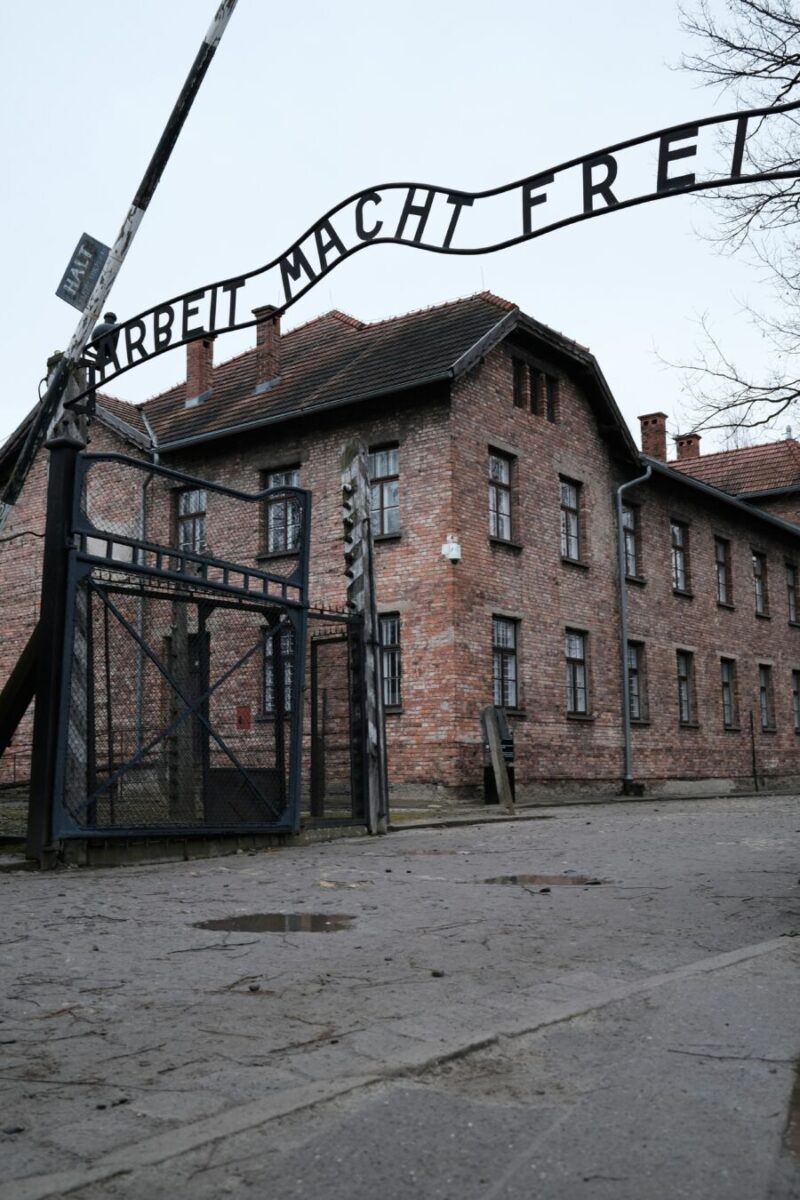
Auschwitz in Poland and the genocide memorials in Rwanda are poignant reminders of human suffering. These sites have been preserved as memorials and museums to educate visitors about the atrocities that occurred and to honor the victims.
Auschwitz, the largest of the Nazi concentration camps, serves as a powerful reminder of the Holocaust. The site includes preserved buildings, exhibits, and memorials that provide a sobering look at the horrors of the genocide. Rwanda’s genocide memorials, such as the Kigali Genocide Memorial, offer a similar experience, honoring the victims of the 1994 genocide and educating visitors about the events that took place.
Ethical Considerations
Visiting sites of human suffering raises ethical questions. Tourists need to approach these visits with respect and sensitivity, understanding the gravity of the events that took place.
Respect and sensitivity are crucial when visiting these sites. It’s important to remember that these are places of immense suffering and loss. Visitors should approach with a sense of reverence and empathy, avoiding behaviors that could be seen as disrespectful or exploitative.
Motivations Behind Dark Tourism

Adventure and Thrill-Seeking
For some, dark tourism is about the thrill of visiting places that are considered dangerous or off-limits. The sense of adventure and the adrenaline rush of exploring these areas can be a significant draw.
The thrill of the unknown and the excitement of exploring places off the beaten path can be powerful motivators. Dark tourism offers a sense of adventure that is hard to find in conventional travel experiences. Whether it’s navigating the ruins of a disaster site or exploring a war-torn region, the adrenaline rush can be exhilarating.
Educational and Reflective Journeys
Others are motivated by a desire to learn and reflect. Dark tourism provides an opportunity to better understand historical events and their impact on humanity. It can be a profoundly educational and reflective experience.
For many, dark tourism is about more than just adventure. It’s an opportunity to learn about the past and reflect on the human condition. These journeys can provide valuable insights and foster a deeper understanding of the world. Whether it’s visiting a Holocaust memorial or exploring the aftermath of a natural disaster, these experiences can be profoundly educational and thought-provoking.
Social Media Influence
The rise of social media has also played a role in the popularity of dark tourism. Sharing photos and stories from these unique destinations can garner attention and admiration from followers, adding a layer of social validation to the experience.
Social media has transformed the way we travel and share our experiences. For many, the opportunity to share unique and thought-provoking travel experiences on platforms like Instagram and Facebook is a significant motivator. The desire for social validation and the ability to inspire others can drive people to seek out dark tourism destinations.
Economic Impact of Dark Tourism
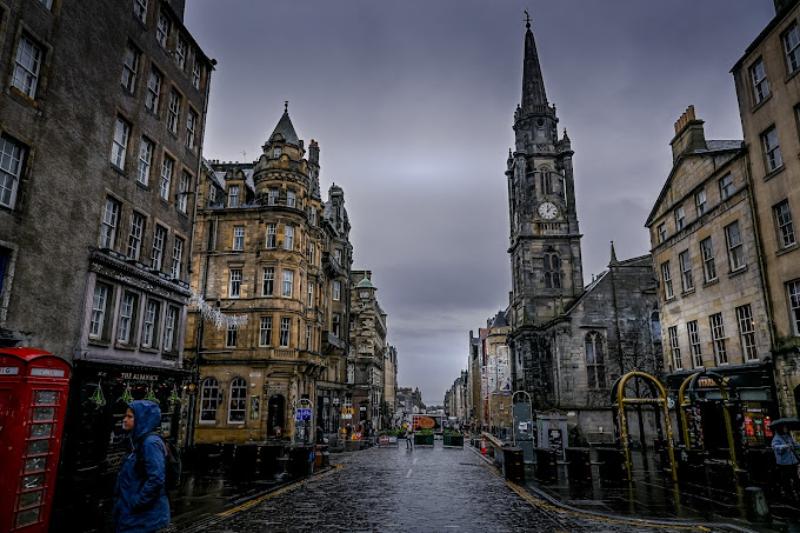
Revenue for Struggling Economies
Dark tourism can bring much-needed revenue to areas that are otherwise struggling economically. Tourists spend money on accommodations, food, and local services, financially boosting the local economy.
For many regions, dark tourism can be a vital source of income. The influx of tourists can provide a much-needed economic boost, supporting local businesses and creating jobs. This revenue can be crucial for areas that have been affected by conflict or disaster, helping them to rebuild and recover.
Job Creation and Local Benefits
The influx of tourists can create jobs and stimulate local businesses. Tour guides, hotel staff, and other service providers benefit from the increased demand, contributing to the region’s overall economic development.
Dark tourism can create a range of job opportunities, from tour guides and hotel staff to local artisans and service providers. This can positively impact the local economy, providing employment and supporting local businesses. The benefits can extend beyond the immediate economic impact, contributing to the overall development and resilience of the region.
Ethical Implications of Economic Gains
While the economic benefits are significant, there are ethical implications to consider. The commercialization of tragedy can be seen as exploitative, and it is essential to balance economic gains with respect for the affected communities.
The economic benefits of dark tourism must be balanced with ethical considerations. It’s important to ensure that the commercialization of tragedy does not exploit or disrespect the affected communities. Responsible tourism practices and a focus on ethical considerations can help ensure that dark tourism’s benefits are realized without causing harm.
Safety Concerns in Dark Tourism

Risks and Precautions
Traveling to high-risk areas comes with inherent dangers. Tourists must be aware of the risks and take necessary precautions. This includes staying informed about current events, following travel advisories, and being prepared for emergencies.
Safety is a top priority when engaging in dark tourism. It’s essential to stay informed about the current situation and follow travel advisories from reliable sources. Tourists should be prepared for emergencies and take necessary precautions to ensure their safety. This includes having a well-thought-out emergency plan and being aware of the risks involved.
Role of Tour Operators
Tour operators specializing in dark tourism play a crucial role in ensuring the safety of their clients. They provide detailed itineraries, security measures, and emergency plans to mitigate risks and ensure a safe experience.
Tour operators play a vital role in ensuring the safety of dark tourists. They provide detailed itineraries, security measures, and emergency plans to mitigate risks and ensure a safe experience. By working closely with local authorities and staying informed about the current situation, tour operators can provide a safe and informative experience for their clients.
Insurance and Emergency Plans
Having comprehensive travel insurance and a well-thought-out emergency plan is essential for dark tourists. This provides a safety net in case of unforeseen events and ensures that tourists are prepared for any situation.
Comprehensive travel insurance is a must for dark tourists. It provides a safety net in case of unforeseen events and ensures that tourists are prepared for any situation. Having a well-thought-out emergency plan is also crucial, providing a clear course of action in case of emergencies.
Ethical Considerations in Dark Tourism
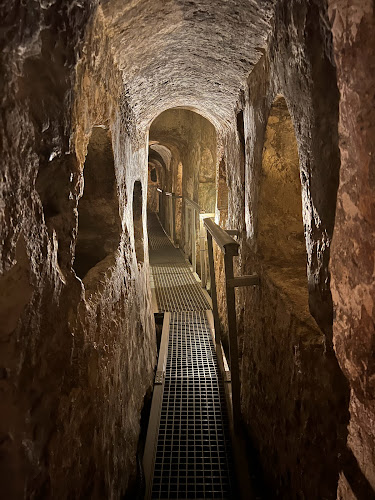
Respect for Victims and Communities
Respect for the victims and communities affected by the tragedies is paramount. Tourists must approach these visits with sensitivity and empathy, understanding the gravity of the events that took place.
Respect and sensitivity are crucial when engaging in dark tourism. It’s important to remember that these are places of immense suffering and loss. Visitors should approach with reverence and empathy, avoiding behaviors that could be seen as disrespectful or exploitative.
Exploitation vs. Awareness
There is a fine line between exploitation and raising awareness. While dark tourism can educate and inform, it is essential to avoid sensationalizing or trivializing the suffering of others.
The line between exploitation and raising awareness can be thin. While dark tourism can provide valuable insights and foster a deeper understanding of the world, it’s essential to avoid sensationalizing or trivializing the suffering of others. Responsible tourism practices and a focus on ethical considerations can help ensure that dark tourism is conducted respectfully and meaningfully.
Guidelines for Responsible Dark Tourism
Responsible dark tourism involves following guidelines that prioritize respect and sensitivity. This includes supporting local communities, avoiding disruptive behavior, and being mindful of the impact of one’s visit.
Responsible dark tourism involves following guidelines that prioritize respect and sensitivity. This includes supporting local communities, avoiding disruptive behavior, and being mindful of the impact of one’s visit. By following these guidelines, tourists can ensure that their visits are conducted in a respectful and meaningful way.
Psychological Impact on Travelers

Emotional Responses and Empathy
Dark tourism can evoke strong emotional responses. Visiting sites of tragedy can lead to a greater appreciation for life and a deeper empathy for those who have suffered.
The emotional impact of dark tourism can be profound. Visiting sites of tragedy can evoke strong emotional responses, leading to a greater appreciation for life and a deeper empathy for those who have suffered. These experiences can be transformative, providing valuable insights and fostering a deeper understanding of the world.
Long-Term Effects on Mental Health
The psychological impact of dark tourism can be long-lasting. It is essential for tourists to be aware of the potential effects on their mental health and to seek support if needed.
The psychological impact of dark tourism can be long-lasting. It’s essential for tourists to be aware of the potential effects on their mental health and to seek support if needed. This can include talking about their experiences, seeking professional help, and reflecting on their journey.
Coping Mechanisms for Tourists
Having coping mechanisms in place can help tourists process their experiences. This includes talking about their feelings, seeking professional help if needed, and taking time to reflect on their journey.
Coping mechanisms can be crucial for processing the experiences of dark tourism. This can include talking about feelings, seeking professional help if needed, and taking time to reflect on the journey. By having these mechanisms in place, tourists can ensure that their experiences are processed in a healthy and meaningful way.
Media Influence on Dark Tourism

Documentaries and Films
Documentaries and films about tragic events have piqued public interest and inspired people to visit these sites in person. Media coverage can play a significant role in shaping perceptions and driving tourism.
Documentaries and films about tragic events have played a significant role in shaping public interest in dark tourism. These media portrayals can provide valuable insights and inspire people to visit these sites in person. By highlighting the stories of human suffering and resilience, documentaries and films can drive interest in dark tourism and shape perceptions.
Books and Articles
Books and articles about historical tragedies provide in-depth insights and can inspire readers to visit the locations discussed. These literary works contribute to the growing interest in dark tourism.
Books and articles about historical tragedies provide in-depth insights and can inspire readers to visit the locations discussed. These literary works contribute to the growing interest in dark tourism, providing valuable information and fostering a deeper understanding of the events that took place.
Social Media and Influencers
Social media influencers and travel bloggers often share their experiences of dark tourism, reaching a wide audience and sparking curiosity. Their posts can influence travel trends and inspire others to explore these destinations.
Social media influencers and travel bloggers play a significant role in shaping travel trends. By sharing their experiences of dark tourism, they can reach a wide audience and spark curiosity. Their posts can inspire others to explore these destinations, driving interest and shaping perceptions.
The Future of Dark Tourism

Emerging Destinations
As dark tourism continues to grow, new destinations are emerging. Places that have recently experienced tragedy or conflict are becoming part of the dark tourism circuit, attracting adventurous travelers.
As dark tourism continues to grow, new destinations are emerging. Places that have recently experienced tragedy or conflict are becoming part of the dark tourism circuit, attracting adventurous travelers. These emerging destinations offer unique and thought-provoking experiences, providing valuable insights into the human condition.
Trends and Predictions
The future of dark tourism will likely see a continued interest in unique and unconventional travel experiences. Trends may include more immersive and educational tours, as well as a focus on responsible and ethical tourism practices.
The future of dark tourism will likely see a continued interest in unique and unconventional travel experiences. Trends may include more immersive and educational tours, as well as a focus on responsible and ethical tourism practices. By prioritizing respect and sensitivity, the future of dark tourism can provide valuable insights and foster a deeper understanding of the world.
Balancing Tourism and Respect
Balancing the interests of tourists with respect for the affected communities will be crucial. As dark tourism evolves, it will be important to prioritize ethical considerations and ensure that tourism benefits rather than exploits these areas.
Balancing tourists’ interests with respect for the affected communities will be crucial. As dark tourism evolves, it will be important to prioritize ethical considerations and ensure that tourism benefits rather than exploit these areas. By following responsible tourism practices and prioritizing respect and sensitivity, dark tourism can provide valuable insights and foster a deeper understanding of the world.
FAQs
What is dark tourism?
Dark tourism involves traveling to places historically associated with death, tragedy, and the macabre. It includes visits to sites of public executions, battlefields, disaster areas, and places of human suffering.
Why are wealthy boomers interested in dark tourism?
Wealthy boomers are often seeking unique and unconventional travel experiences. Dark tourism offers them the opportunity to explore places that are off the beaten path and provide a deeper understanding of the world’s complexities.
What are some popular dark tourism destinations?
Popular dark tourism destinations include war zones like Afghanistan and Iraq, natural disaster sites like Fukushima and Chernobyl, and sites of human suffering like Auschwitz and Rwanda.
What are the ethical considerations in dark tourism?
Ethical considerations in dark tourism include respecting the victims and communities affected by the tragedies, avoiding exploitation, and following guidelines for responsible tourism.
How can tourists ensure their safety when engaging in dark tourism?
Tourists can ensure their safety by staying informed about current events, following travel advisories, working with reputable tour operators, and having comprehensive travel insurance and emergency plans.
What is the psychological impact of dark tourism on travelers?
The psychological impact of dark tourism can be profound, evoking strong emotional responses and fostering a deeper understanding of the world. It’s essential for tourists to be aware of the potential effects on their mental health and to seek support if needed.
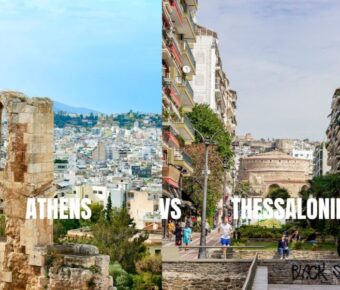

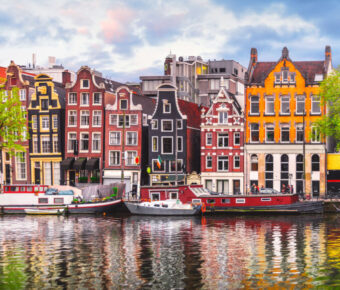
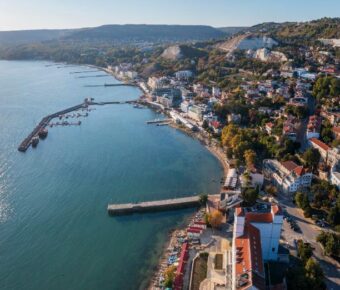
Alden
Wow, this article on dark tourism really got me thinking! I’ve always been fascinated by the eerie and mysterious, but I’m curious how others feel about it. Do you think there’s a line between respectful exploration and exploitation when it comes to [visiting these macabre destinations](https://www.travelblogadvice.com/communication/how-to-generate-more-discussion-and-comments-on-your-travel-blog/)? I’d love to hear about any experiences you’ve had with dark tourism. Has anyone been to Chernobyl or Auschwitz? How did it impact you emotionally? And for those who haven’t gone yet, what’s holding you back? Is it the cost, the potential risks, or something else? I’m particularly intrigued by how this trend is catching on with wealthy boomers – what do you think is driving that demographic towards these unconventional experiences?
Bikash
This is such an exciting and unique take on travel! Dark tourism offers a rare opportunity to deeply explore history and human resilience in a way that conventional tourism can’t match.